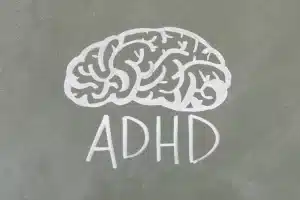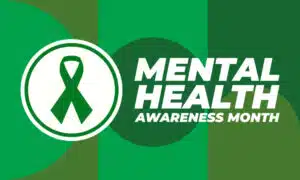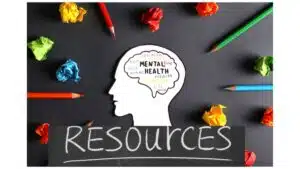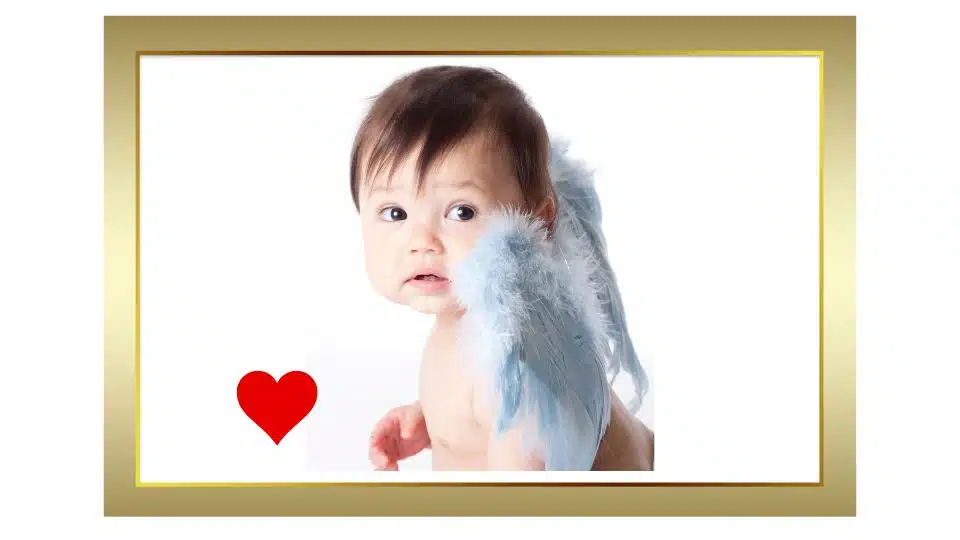My angel baby – A personal journey to overcome postpartum baby blues and grief associated with stillbirth.
“I thought of you today, but that is nothing new. I thought of you yesterday and the day before that too. I think of you in silence, I often speak your name. All I have are memories, and your picture in a frame. Your memory is a keepsake from which I’ll never part. God has you in his arms, I have you in my heart.” Unknown
There are moments in your life that you have pictured time and time again; one of them is the moment you become a parent and hold your baby for the first time. What might that feel like? What kind of parent do I hope to be? What will I name them? What will they look like?
On July 27th, 2007, I learned that there was a different reality than many experiences that looks nothing like what I just described. Fifteen years ago, this July, my angel baby Ella was born. She was perfect; ten fingers, ten toes, a button nose, and yet not mine to keep. This moment will forever place a hold on my heart, and leave me with many questions as to WHY?
Stillbirth affects about 1 in 160 births and each year 24,000 babies are stillborn. Studies have also shown that over 3 million miscarriages happen per year. These are all situations that parents are not prepared for, and the aftermath can be devastating to relationships, mental health, and financial stressors.
Postpartum depression is extremely common and roughly 3 million women experience it each year. This is a result of your body and hormones attempting to go back to “normal.” Postpartum can be very difficult to work through, with some symptoms lasting 3-5 days, and some lasting months.
My personal experience has led me to a place that I believe needs more recognition and attention to address the mental health concerns that come with not only postpartum but the reality of losing a child and then trying to understand the process their body is going through without the necessary support or tools they need to embrace self-care.
“Baby blues” exhibit symptoms of crying spells, anxiety, panic attacks, difficulty sleeping, weight gain or weight loss, loss of motivation, isolation from all social interactions, and guilt; feeling as though you did not do your best to care for yourself and your unborn child. If baby blues are left untreated, these symptoms can increase to a level of severity that could require professional services in hopes of preventing the worst outcome.
One thing to acknowledge is how very common these feelings are and that you are never alone! Postpartum obviously can be different for those in many ways, especially the days after bringing home a newborn baby. I would like to focus on postpartum and grief.
I share my experience of postpartum grief and baby blues in hopes of supporting those that have been placed in this same position, that have not yet been able to process their feelings, don’t know what to do with their empty feelings, and need to know that others have shared in their journey, so that they may find comfort and peace.
Though my journey since having Ella has been one of the less desired outcomes, there have been trials and tribulations that have led me to where I am today. It’s important to be mindful of your body, your emotions, your mood, and your thoughts. The psychological impacts can be detrimental to your health and long-lasting, however, I am here to tell you that with the right support team, coping skills, and mindfulness, it is possible to feel “normal” again to embark on what life has in store for you.
Here are a few tools I think are most important for your wellness to overcome postpartum grief and baby blues after a stillbirth:
#1. Never stop talking
Talk about your feelings, share your thoughts, share your story, and recognize the trauma you just experienced. Do this in a safe setting, with supportive people who love you, care for you and listen with open ears. I understand this can be difficult, no one wants to continue to open wounds and relive that moment, however when we quit talking, mental health symptoms exacerbate.
Suicidal thoughts are very real, extreme grief can lead us into a hole that can be difficult to come out of. Please seek help if you experience self-injurious thoughts or behaviors. By sharing our experiences, we can begin the healing process, identifying how we are feeling and where we go from here.
I personally did not keep talking, I did not turn to those around me, but rather stuffed everything inside and experienced extreme postpartum grief and baby blues. Thankfully my doctor was my saving grace, talking me through my feelings and suggesting medication for a period of time to help me get back on track. Jen was my hero through this all.
Do some research in your community to find out if there are support groups in your community where you can connect with other women, this will bring comfort and peace.
#2. Be patient and kind to yourself
Healing takes time, you have experienced something so unthinkable and it’s ok to take it ONE DAY AT A TIME. This is something I have now learned many years down the road. Take a moment to reflect on how your body is feeling, this is the opportunity for you to use your mindfulness tools, guided imagery, and grounding techniques.
Sit somewhere and deep breath, go take a hot bath and unwind your mind, go for a walk, focus on the beauty that you see around you, and notice the sounds and smells. Self-care is necessary to keep your physical self well and to check yourself every day to make sure that although you are feeling a certain way, you are paying attention to your wellness wheel and keeping yourself on track.
Remember, one day will be easy and ten days may be difficult. The grieving process after stillbirth takes time, your body is hormonally experiencing a huge shift, keep in contact with your doctor for any further concerns when you are experiencing postpartum baby blues.
#3- Embrace memories and your miracle
The greatest joy we have through this situation is remembering the precious gift we brought into this world. Although we did not get to keep them, they will always be a part of our family, they will always be your son or daughter and they will always be your forever angel. Its important to talk about them, celebrate them and remember them in any way that you see fit.
Be creative, I have witnessed many strong women remembering their angel in some very significant ways. However, this also leads to questions that we must be prepared to answer and speak about. Keep it simple. Check in with your mind and body to see how you are feeling and notice the baby blues and emotions that arise.
Again, the grieving process has no timeline. Each year has been a learning experience for me, and each year brings different emotions, from not feeling like getting out of bed, to joy thinking about Ella and embracing the age should we be and what she would be doing. It all takes time, and everyone’s time and healing are different.
Although this topic is difficult, it is something that deserves more attention. We need to support each other, learn from each other, and identify the trauma that we have experienced to heal. Be mindful of your mental health, recognize your symptoms and find the strength to use the tools necessary to get you through difficult times.
Reach out to your support team, communicate with your doctor, and do some research in your community about support groups that may be available to you, connecting with other women who have experienced postpartum baby blues will build strength and comfort. Keep talking, be kind to yourself and make memories.
Follow me on Facebook (Vikingland Community Support Program) Instagram Beckyschmitz7 and LinkedIn.
And Subscribe to Healthieyoo!

Rebecca Schmitz
Related Posts

ADHD Awareness Month – Understanding ADHD
ADHD Awareness Month October is ADHD awareness month. Let us understand ADHD in this month. The last 42 years overseas was a key phase

Meditative Mind – One Simple Exercise To Strengthen Your Mind
Meditative mind Why is self-awareness important? What is a meditative mind and how practicing mindfulness or mindful breathing can help relieve anxiety, increase productivity,

Support System – Mental Health Toolbox Part 6 – The Socket Set
The importance of support system for mental health – here is the Toolbox Part 6: The Socket Set. “Surround yourself only with people who are

Grounding Techniques – Mental Health Toolbox – Part 9 – The Sander
May is Mental Health Awareness Month resource and here is the much-awaited Mental Health Toolbox Part 9 on Mental Health Awareness Month 2022 on Grounding

The Superpower Of Self
Realize the superpower of Self for your optimal wellbeing. Here is how.. Since childhood, we are constantly asked the question? “What will you be when

Mental Health Awareness Month Resources
Here are the Mental Health Awareness Month Resources for Mental Health Awareness Month 2022, 2023, and beyond! “Our lives begin to end the day we

